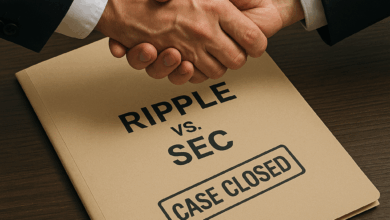Crypto lawyers flame Gensler over claims that all crypto are securities

Cryptocurrency lawyers have rebuffed comments made by the head of the United States securities regulator, who claimed in a recent interview that every cryptocurrency except Bitcoin (BTC) is a security that falls under its jurisdiction.
In a wide-ranging Feb. 23 New York Magazine interview discussing crypto, Securities and Exchange Commission Chair Gary Gensler claimed “everything other than Bitcoin” falls under the agency’s remit.
He added other crypto projects “are securities because there’s a group in the middle and the public is anticipating profits based on that group,” which he said is not the case with Bitcoin.
Gensler in @NYMag on crypto:
-everything is a security except bitcoin
-every company out there is in violation
-crypto is pointless but blockchain is kinda neatHard to argue you’re acting in good faith if admittedly trying to stamp out an entire industry. pic.twitter.com/Ozw8ZJ3ETO
— Alexander Grieve (@AlexanderGrieve) February 26, 2023
Jake Chervinsky, a lawyer and policy lead at the crypto advocacy group the Blockchain Association, argued however in a Feb. 26 tweet that Gensler’s “opinion is not the law” despite his claimed command over the crypto sector.
Chair Gensler may have prejudged that every digital asset aside from bitcoin is a security, but his opinion is not the law. The SEC lacks authority to regulate any of them until and unless it proves its case in court. For each asset, every single one, individually, one at a time.
— Jake Chervinsky (@jchervinsky) February 26, 2023
He added “until and unless” the SEC “proves its case in court” for its jurisdiction over each individual token “one at a time” then it “lacks authority to regulate any of them.”
Lawyer Logan Bolinger also chimed in, tweeting on Feb. 26 “that Gensler’s opinions on what is or isn’t a security are not legally dispositive” — meaning it’s not the final legal determination.
Friendly reminder that Gensler’s opinions on what is or isn’t a security are not legally dispositive.
In this country, judges – not SEC chairs – ultimately determine what the law means and how it applies.
Doesn’t mean his thoughts are irrelevant. They’re just not dispositive.
— Logan Bolinger (@TheWhyOfFI) February 26, 2023
“Judges — not SEC chairs — ultimately determine what the law means and how it applies,” Bolinger added.
The policy lead at advocacy body Bitcoin Policy Institute, Jason Brett, said Gensler’s comments “shouldn’t be celebrated, but feared” and stated, “there are ways to win other than via a regulatory moat.”
The Gary Gensler thing is no bueno. There are ways to win other than via a regulatory moat. And anytime this is the way, the script can be flipped and before you know it, everyone is crying due process. Gensler’s comments in NY Magazine shouldn’t be celebrated, but feared.
— Jason Brett (@RegulatoryJason) February 26, 2023
SEC needs 12,305 lawsuits: Delphi Labs counsel
Meanwhile, Gabriel Shapiro, the general counsel at investment firm Delphi Labs, outlined in a series of tweets the seemingly impossible enforcement that the SEC would have to carry out on the industry to cement its rule.
Shapiro said that over 12,300 tokens worth around $663 billion are — according to Gensler — unregistered securities that are illegal in the U.S. and, as mentioned by Chervinsky, the agency would have to file a lawsuit against each token creator.
Related: Emojis count as financial advice and have legal consequences, judge rules
The SEC has handled crypto in two main ways, according to Shapiro: Either fining token creators and requiring the issuer to register, or fining them and ordering the created tokens to be destroyed and delisted from exchanges.
so far, SEC has handled tokens in mainly 2 ways:
(1) fine + registration requirement–this failed every time so far, with the companies becoming bankrupt
(2) fine + order to destroy all premined tokens and delist tokens from all exchanges
both ways, tokens go to $0
— _gabrielShapir0 (@lex_node) February 26, 2023
“SEC registration is not only too expensive for most token creators — there is also no clear path for registration of tokens,” Shapiro said, adding:
“What is the plan here? Since registration is not feasible, it can only be [that] everyone pays huge fines, stops working on the protocols, destroys all dev premines, and delists [tokens] from trading. That would mean 12,305 lawsuits.”
“What is the plan? We are all wondering, and billions of American [dollars] are at risk.”





